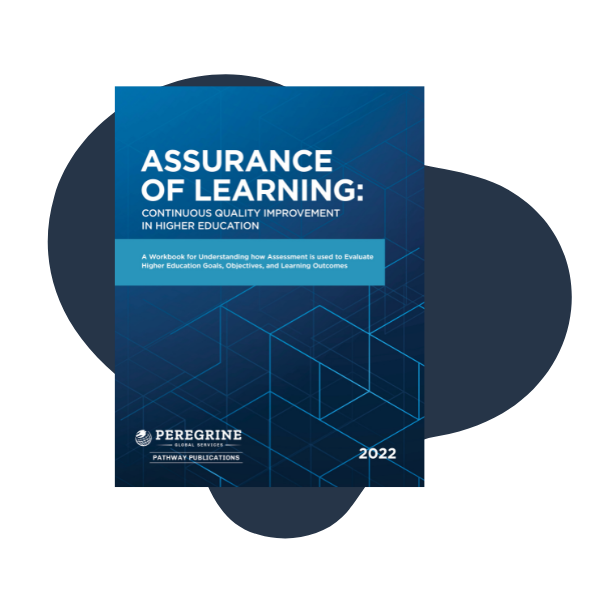As the field of criminal justice continues to shift in reaction to the changing climate within the United States, higher education programs training our criminal justice programs must be proactive. Through our partnership with organizations such as the Academy for Criminal Justice Sciences, it is evident that higher education is evolving – adjusting learning outcomes, supplementing curriculum, and working diligently to prepare learners to join the field of criminal justice. A key component in ensuring the success of these programs as they make radical changes to meet societies needs, is measuring the impact of these changes through assessment.
How Criminal Justice is Changing
A call was made to law enforcement when a 23-year old man became violent with his caretaker. The officer responding to the call discovered the young man was autistic and was angry and frustrated because he couldn’t get an Apple gift card to work. The officer offered to help with the problem and spent the next hour helping the young man recover his account password and redeem the gift card.
Another officer responded to a call about a pit bull on the loose. As he approached the house to give the ticket for an animal at large, he noticed laundry hanging up over the fences and a tub with a washboard where someone had been handwashing clothes. The woman who answered the door burst into tears at the ticket, and the officer asked if everything was alright. She explained that she and her husband had five children, her washing machine had broken, and she was trying to keep everyone in clean clothes. Unfortunately, her dog escaping was the last straw that day. The officer listened and decided to do something. He located a nearly new washing machine at the local thrift store. After explaining the situation to his fellow officers, several chipped in to help the family out. He borrowed a police department truck to deliver the machine and returned to the house to surprise the family with the gift.
More than feel-good stories, these two examples of officer action speak to the evolving nature of law enforcement. One officer commented, “Law enforcement is people skills. It’s not about yelling commands, giving orders; it’s about being able to talk to people and understand the situation.” He explained how often mental health issues are at the root of a violent episode and that by responding with empathy, they can de-escalate a crisis.
The Role of Higher Education
In a recent Inside Higher Ed article on educating future law enforcement officers, authors point out that “Traditionally, criminal justice education focuses more on the facts about our criminal justice system rather than on questioning the current state of affairs, which all too often includes systemic bias and inequity” (Byrne & Bezbatchenko, 2021). The officers in our examples understand the need for an expanded view of law enforcement, serving the public through thoughtful interaction in cases where economic, social, and racial issues can lead to unnecessary conflict and mistrust.
As law enforcement is increasingly tasked with promoting public safety in areas traditionally outside the purview of the justice system, criminal justice programs are responding with a focus on sociological issues: inequalities and stratification, social welfare, and human rights. These areas have a direct bearing on the treatment of people in diverse socio-economic and racial groups. As a result, many criminal justice programs supplement their traditional curriculum with a focus on sociology, making for more effective future officers who understand the root causes behind public issues. Alongside studies on law enforcement, courts, and corrections, students explore the demographics of correctional populations, the impact of incarceration on the lives of inmates and families, and reasons for incarceration.
Assessing Criminal Justice Programs
The assessment of learning outcomes is essential to quality. Assessment data are used to evaluate learning, see trends over time, and understand change. Measuring performance is a crucial tenet of quality assurance programs serving a variety of purposes. Measuring performance tells you what you are doing well and allows you to share your successes to improve quality on a larger scale and adjust where needed. Measuring performance also ensures that an institution is on track to meet its mission and goals – the very thing that should be driving all activities. Additionally, measuring performance allows institutions to be transparent, gaining the support of external stakeholders. Whether that is alumni, foundations, prospective students, or industry partners, sharing performance information will garner support and buy-in. Finally, an expected benefit of quality in higher education is accreditation. Accreditation recognizes and substantiates an institution’s high level of performance.
Peregrine has adapted its learning outcomes assessment to include this intersection of criminal justice and sociology. Recognizing that the field has broadened in the past decade, we added new topics to capture the direction of criminal justice education better. Department chairs and assessment coordinators can gather data on their students’ achievement by selecting topics that align with learning outcomes to ensure that their graduates are poised to serve their communities effectively. With each graduating cohort, institutions understand where their programs deliver on their learning goals and where there is room to grow.
With Peregrine’s Criminal Justice assessment, criminal justice programs can effectively demonstrate student learning outcomes and target areas for improvement. To learn more about our assessment solution for criminal justice, click here.
References
Byrne, D.N., & Bezbatchensko, A.W. (2021, January 26). Educating future law enforcement officers. Inside Higher Ed. https://www.insidehighered.com/views/2021/01/26/criminal-justice-education-needs-change-and-humanities-must-play-role-opinion


